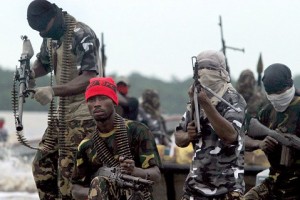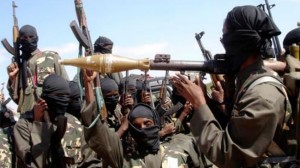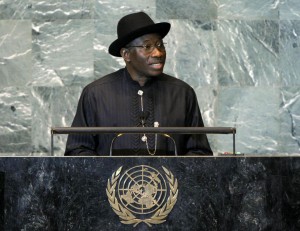By Aidan Liban | –
Boko Haram, an Islamist militant group, recently gained worldwide notoriety after it kidnapped more than 200 schoolgirls in northern Nigeria. They have also been responsible for a wave of assassinations and bombings killing thousands of people since 2009. In the oil rich Niger Delta region another militant group MEND has been waging a guerrilla war against their local corrupt government and the oil companies for several decades. Will the government subdue both of these groups or will Nigeria descend into anarchy?
Boko Haram rose to prominence when on April 14, 2014; the militants stormed an all-girls school in the state of Borno, Nigeria and ordered 276 of them to board awaiting trucks . The girls aged between 12-15 are believed to be held in a secret location on the border with Cameroon. The militant group’s leader Abubakar Shekau has since released a video threatening to sell the girls into slavery. Boko Haram: which means ‘Western education is a sin’ in the local Hausa language wants to promote the purest form of Islam and forbids anyone from participating in western related activities regardless if it is social or political. They militants believe that schoolgirls education is un-islamic and their abduction is justifiable in the name of Islam.
Boko Haram has finally succeeded in getting the international attention it has been seeking. The schoolgirls abduction was part of a long campaign of violent insurgency in the northern states of Nigeria that wants to establish an Islamic government. Boko Haram have killed more than 500 people this year alone. Although the militant group was founded in 2002 it wasn’t until 2009 that the insurgency started.
In July of that year the terrorist group set several churches, a police station and a prison on fire, killing hundreds of people. In June 2011 a police station was bombed killing 6 people and in August 2011 eighteen people died when an explosion ripped through the UN headquarters in the capital. In November 2011, 150 people were killed when a convoy carrying the Borno state governor Kashim Shettima was attacked. Although many more militant attacks took place since 2011, it wasn’t until the schools girls’ abduction that the profile of Boko Haram was raised and took the international spotlight from the other African Islamist militant group Al-Shabab.
Just like Al-Shabab, Boko Haram has received training from Al-Qaeda and the UN Security Council has since declared the group a terrorist organisation with imposed sanctions to follow. The US, following a hugely successful ‘Bring back our girls’ campaign featuring the first lady, has offered the Nigerian government help in locating the abducted schoolgirls by deploying troops and surveillance Drones in neighbouring Chad. The president of Nigeria, Goodluck Jonathon, said last week that he has ordered a full military offensive against Boko Haram and reassured the parents of the abducted schoolgirls that they will be rescued safely. In a televised speech he added, “ I am determined to protect our democracy, our national unity and our political instability, by waging a total war against terrorism’.
A full war against Boko haram is unlikely to happen anytime soon due to the Nigerian government’s slow and ineffective response to this crisis. The Nigerian security services are over stretched and under-equipped in the most populous country in Africa. The northern states have been marred by weekly violence spearheaded by Boko Haram militants. Indeed, it is so unsafe that president Goodluck Jonathon has cancelled a recent visit to the volatile region. Nigeria has been fighting off mutinous rebel groups for several decades to no avail. The conflict in the Niger Delta has also become another burden for the government as it struggled to defeat them. For many years the armed rebel group known as the Movement for the Emancipation of Niger Delta (MEND) have waged a war against the large foreign oil companies in the oil-rich Niger Delta. In 2010, MEND kidnapped 3 Britons and a Colombian working for NETCO when their convoy was attacked near Port Harcourt. In 2012, four South Korean workers were kidnapped for ransom by MEND gunmen in an oil plant in the Niger Delta. In addition to Kidnappings of foreign workers, MEND have blown up pipelines and killed Nigerian soldiers. They have also demanded restitution from the oil industry for the environmental damage caused in their communities and a greater share of the oil revenue for the local government as well as more development to improve the lives of the inhabitants of the Delta region.
The Niger delta conflicts have always been closely monitored by the United States to protect its own interest. In 2000, the US department of state, without specifically naming MEND has identified the Niger Delta region to be a breeding ground for militant ‘impoverished ethnic groups’. The ethnic groups in question are the Ogani people who along with other ethnic communities in the region have waged a four decade long guerrilla war against the so called ‘slick alliance’ between the oil companies, the Nigerian state and the military. The tension between the Ogani rebels and the government reached its peak in the 1990s when nine Ogani rights activists where executed following an unfair trial. As a result, oil production was completely paralyzed between 1996-1998. Rebels formed of mostly disaffected youths seized oil wells, terminals and flow stations and kidnapped workers for ransom, which would become more frequent in the following years. Thus, making the Niger Delta synonymous with violence, oil and corruption.
Nigeria is Africa’s largest oil producer and petroleum products make up almost all of the country’s exports.However, the governor of Nigeria’s Central Bank recently reported that $20 billion of state oil revenues is unaccounted for or ‘missing’. Corruption is rife within the Nigerian government and it’s because of this lack of transparency that Boko Haram and MEND have been able to take advantage. Indeed, Corruption has security implications, from the highest levels in the government down to the local police officer; the Islamist militants can evade capture by bribing them. Corruption will be the Achilles’ heels for the Nigerian government if it doesn’t do more to tackle this problem. The authorities must act swiftly to ensure its security services are better equipped, promote more transparency and accountability, reduce poverty and compensate the Niger delta inhabitants. There are challenging times ahead for Nigeria and if it doesn’t confront these issues head on it will descend into Anarchy.
Aidan Liban is an aspiring journalist from London. He is multi-lingual with a passion for the arts, current affairs, literature and photojournalism.





